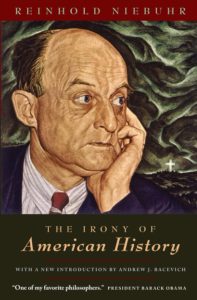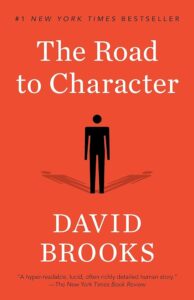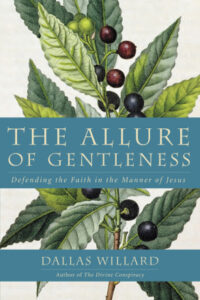 Takeaway: I wish more people read Reinhold Niebuhr. He has much to say both about politics and international relations, and also about the limits of security and state power.
Takeaway: I wish more people read Reinhold Niebuhr. He has much to say both about politics and international relations, and also about the limits of security and state power.
The Irony of American History is oddly relevant. It was written in 1952 and based on two lectures given earlier than that. The introduction calls it the most important book on American foreign policy ever written. That is a bit too strong, but still Niebuhr understands in a way that very few do, the weaknesses of all human forms of government, while still being hopeful that government can serve the people.
Niebuhr, with proper use of irony, speaks of the issues of the 1950s in similar terms to many others in talking about the global reach of US power. It is almost funny that Niebuhr quotes US policy makers that think that the Asians should be more grateful to the US (at the time it was Korea, soon to be Vietnam) for our intervention to their affairs. But it is very similar to the way that some in the Bush administration thought we would be received in Iraq and Afghanistan.
The narrator on the audiobook is a bit pretentious sounding and I think that detracts from what Niebuhr is trying to say. But in general Niebuhr traces the thought patterns of a Jeffersonian (roughly secular) and a Puritan (certainly Christian) that both view the United States as a fundamentally separate place. The language of the Puritans is a “City on a Hill” and “called out by God for a specific purpose”. But the Jeffersonian ideals are not much different. Jefferson was secular in his reasoning, but thought that the separateness of the geography and the rightness of our political will and life also left us with a specific calling and purpose that in the end was not much different from the calling and ideals of the Puritans.

 Summary: We need to be pursuing eulogy virtues, not resume virtues.
Summary: We need to be pursuing eulogy virtues, not resume virtues. Summary: Christianity is not just about the salvation event, it is also (or maybe primarily) about the life we live after the salvation event.
Summary: Christianity is not just about the salvation event, it is also (or maybe primarily) about the life we live after the salvation event.
 Summary: An impassioned letter from an African American father to his 15 year old son.
Summary: An impassioned letter from an African American father to his 15 year old son.

 Summary: The method of apologetics is intrinsically linked to the work of apologetics.
Summary: The method of apologetics is intrinsically linked to the work of apologetics.